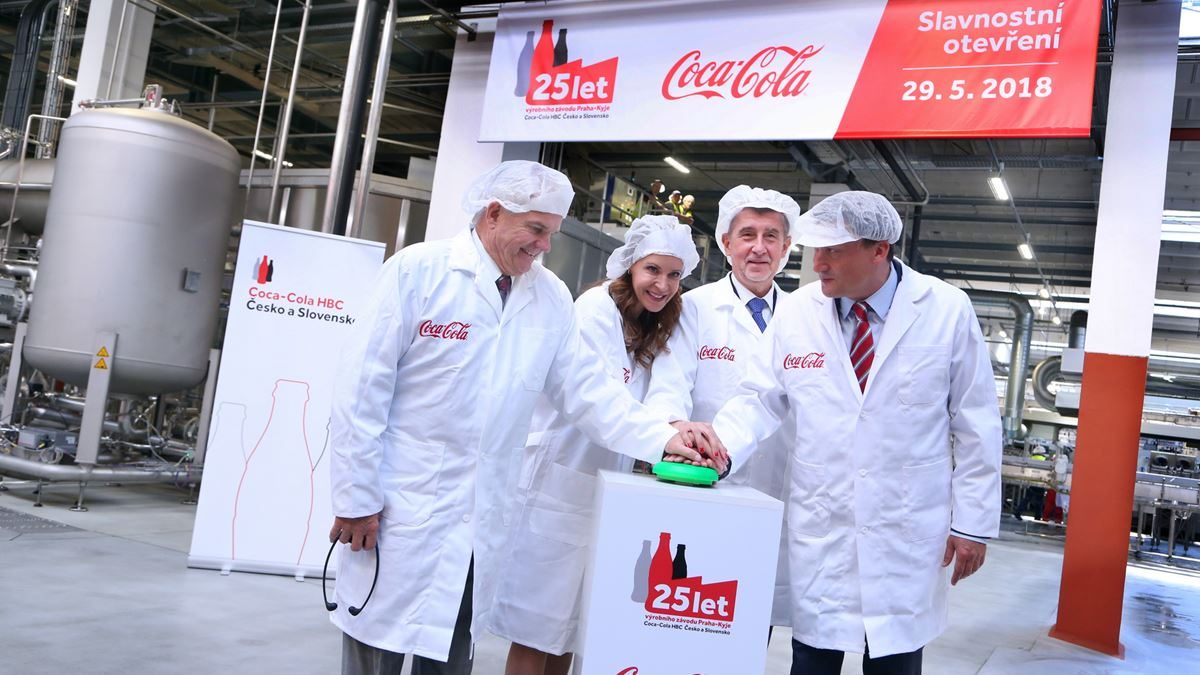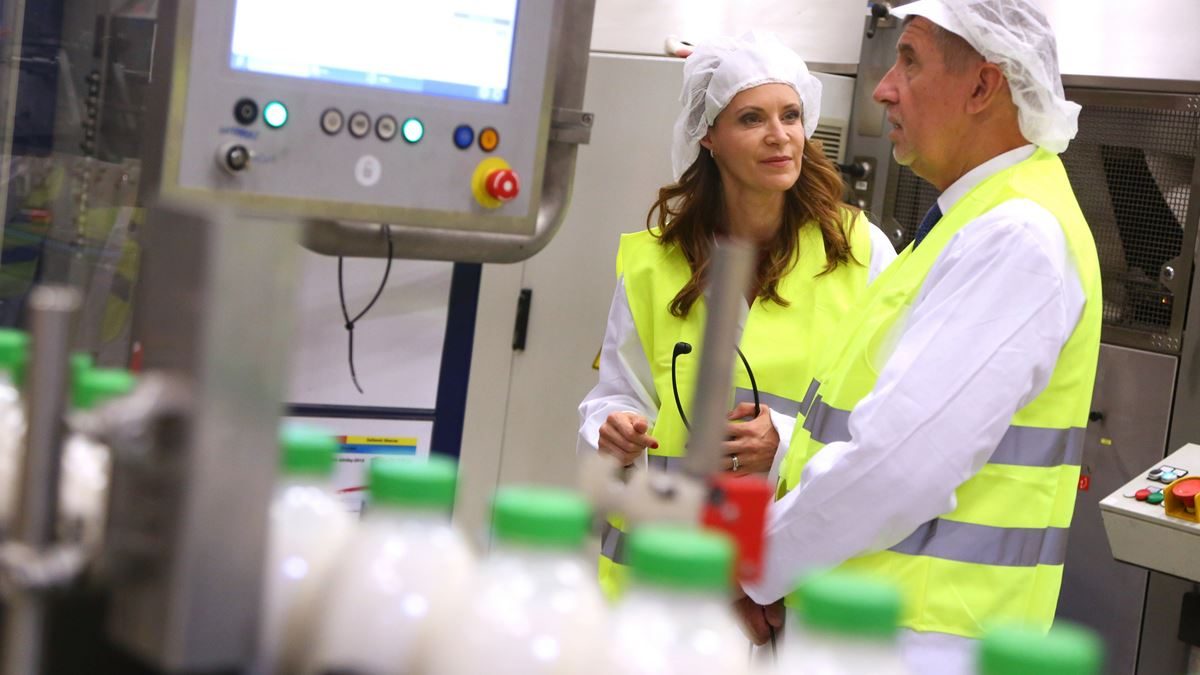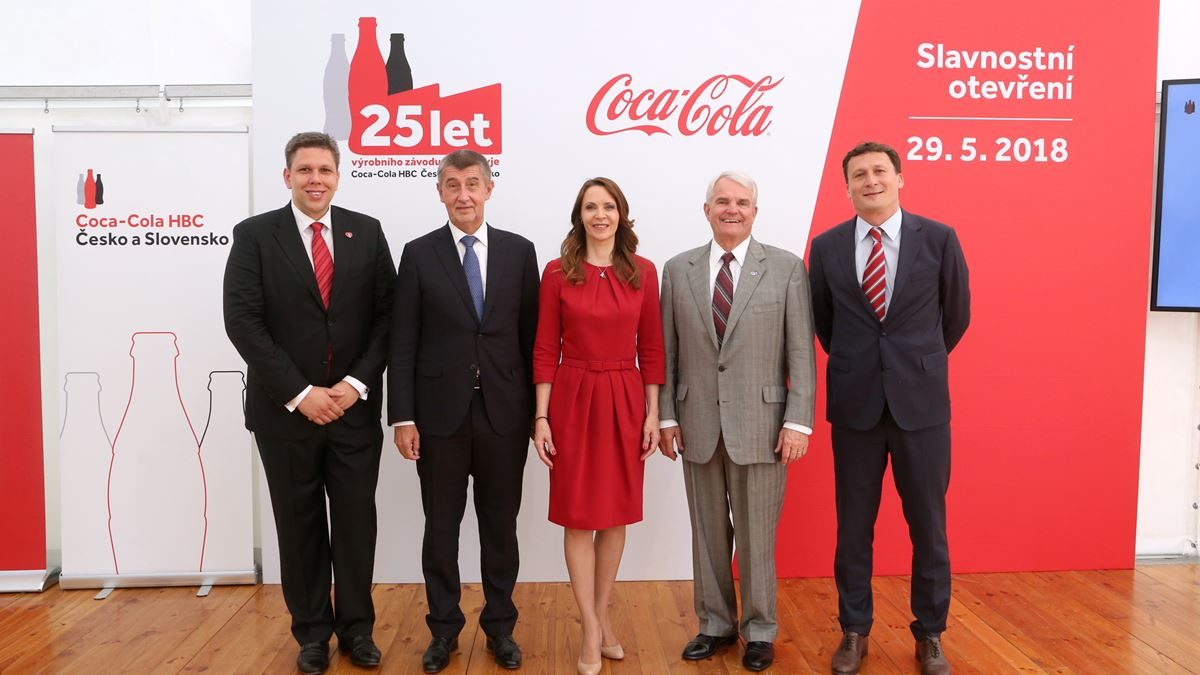"Over 300 million crowns has been invested in the new lines. During the last few months we have also invested tens of millions more in the new syrup plant and production safety. We see new investments in the future as the best way to celebrate the past 25 years. We are now working on other plans to modernise and digitise our production plant. The Czech plant will thus become even more important within Europe," said Maria Anargyrou-Nikolić, General Manager of Coca‑Cola HBC Czech Republic and Slovakia. During the last ten years Coca‑Cola HBC Czech Republic and Slovakia has invested more than 3.2 billion crowns.
Plant-based products in Coca‑Cola HBC
The modern aseptic line enables the firm to expand its portfolio to include products that are more demanding in terms of processing. The line will be the first in Europe to produce AdeZ, a plant-based beverage made from almonds, coconut, grain and rice, both without any additional flavourings, in two different fruity flavours. These “plant milks” are intended for 11 European markets, and will start to be sold on the Czech and Slovak markets at the turn of 2018 and 2019. The aseptic line is particularly unique in terms of its technology, which eliminates the risk of the microbial contamination of bottles.
The new PET line can product up to 56 thousand litres of beverages an hour, and thus has a major impact on further boosting the efficiency of the plant. The greater line capacity will enable flexibility and better planning and will reduce the dependence of the Czech and Slovak markets on imports of Coca‑Cola products from other countries. At the same time, the modern technology will significantly reduce water and electricity consumption. During one year of operation the line will save on around 12,000 cubic metres of water and over two million kWh of power.
Czech plant on the rise
Coca‑Cola HBC Czech Republic and Slovakia, which now has around 1000 employees in the two countries (more than 800 of whom work in the Czech Republic), launched production in Prague-Kyje back in 1993, then as Coca‑Cola Amatil. At that time it has three production lines, 280 employees and produced around a third of the volume it manufactures now. It now has 40 thousand active customers in the Czech Republic and Slovakia, supplying them with some 200 different variations on Coca‑Cola products. These products can also be purchased in more than 10 countries to which they are exported on a regular basis. Products are exported to another 15 countries in line with the current needs of the local markets.
The product portfolio is also expanding significantly in accordance with the new global strategy of Coca‑Cola, which wants to become the “Total Beverage Company”, offering beverages to suit any opportunity all day long.
“Our strategy is now to expand our portfolio with a focus on low-calorie and zero-calorie beverages and also present innovations in our waters, teas and plant-based beverages. Our investment in the new line we have introduced today is another good step in that direction,” says General Director of Coca‑Cola Czech Republic and Slovakia Josef Karásek.
Sustainable processes
Coca Cola HBC was the first company in the world from the entire beverage industry to come top four years in a row (2014-2017) in the Dow Jones Sustainability Index.
The firm strives to protect the environment by doing more than merely investing in modern production lines and technology. In the Czech Republic Coca‑Cola HBC was involved in the creation of the Eko-kom system of collecting and recycling waste packaging, thanks to which 74 % of waste is now sorted in the Czech Republic (for PET the figure is 69 %). One hundred percent of the electricity used in production in Kyje comes from renewable sources. Over ninety percent of solid production waste is recycled in the plant. Water and power consumption per litre of beverage manufactured has fallen by around 40 % in the last 10 years. The PET bottles made by the firm are 100% recyclable and contain up to 30 percent recyclate. AdeZ products are bottled in what is known as the Plant Bottle, which contains 30% plant-based materials.
In the Czech Republic the company does not only invest in production, but in its employees, too. This summer it will be modernising the working environment for several hundred employees in the main building in Kyje and will be welcoming a wave of new university graduates as part of its two-year Trainee Programme.
In terms of its community work the company has long supported children’s homes, to which it has donated more than 20 million crowns. Last year, together with the Tereza Maxová Children Foundation, it presented children with its biggest project yet, To dáš! (You Can Do It!), which helps youngsters leaving children’s homes, women in shelters and other disadvantaged young people to find work in the labour market. The company is also the main partner of another project implemented by the Foundation, this being Teribear hýbe Prahou (Teribear moves Prague). In addition to this, it is also involved in long-term collaboration with other non-profit organisations – the Světluška (Firefly) project of the Czech Radio Endowment Fund, the organisations Cesta domů (The Way Home), the Jedlička Institute, Acorus, Šance Olomouc and the Red Cross.







